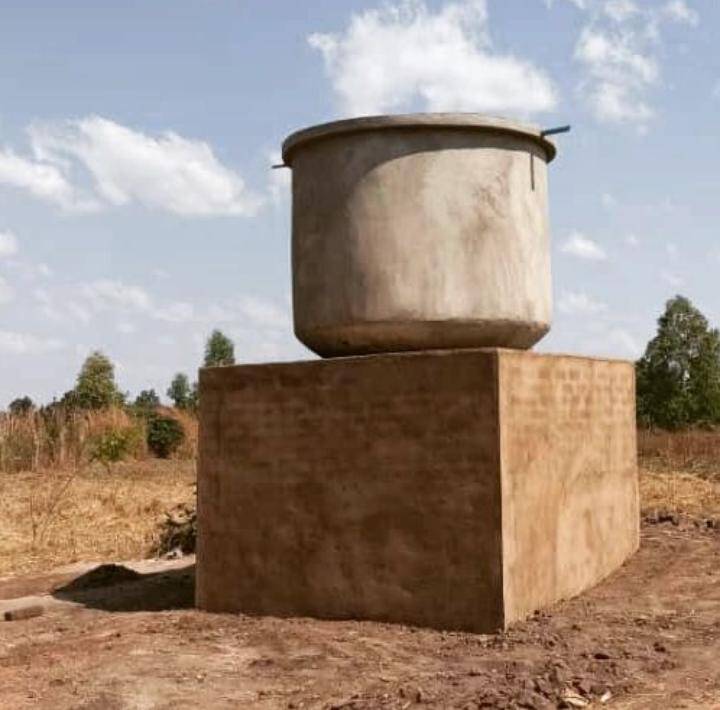By Michael chiotcha
The Rainwater Harvesting Association of Malawi (RHAM) has advised farmers to adopt rainwater harvesting technologies in order to have water all year round and fight the effects of climate change.
RHAM is currently working with farmers to promote rainwater harvesting and integrated complimentary technologies with rainfall harvesting ponds aiming at enhancing improved sustainable livelihoods.
Speaking in an interview, member for RHAM Carol Kaitano said the organization is constructing up to 15 tanks at its model village (Kanuyumbu village) in Mitundu, Lilongwe to promote sustainable rainwater management through rooftops harvesting as option for domestic water supply.
Kaitano further added that climate crisis is threatening the world’s water, therefore rainwater harvesting helps communities to store rainwater in a simple way to ensure they have clean water all year around.
“In our capacity building meetings we advise those harvesting from rooftop to avoid harvesting from first rains. First rains wash the rooftop so that the collected water is clean, free from dust and debris,” she said.
She said as long as rain collected water is clean and tank is always closed to deny sunlight entry, the water can be stored for a long period.

RHAM has been training farmers on harvesting rain water in farm in – situ rain harvesting technologies.
“Farmers are advised to use swales, check -dams, infiltration pits, stones bunds as technologies in rain harvesting.” said Kaitano.
She said these technological methods helps rain water to sink into the soil profile and spread across the farm.
“In case of dry spell crops in the field may not wilt because the soil has enough moisture for the plants to use, and it returns in bumper yield for farmers,” she said.
Kaitano added that the organization has constructed a Calabash tank of 5000 litres and 2500litres for different households in the village for domestic water supply.
The initiative has not only been a relief to farmers but also children as they to go to school in time rather than wasting time in fetching water.
“Women in the area also like the tanks for being a relief to have water at their door steps,” explained Kaitano.
She added that as country, Malawi has not done much in rain water collecting as most of it is left to run off and the country is yet to realize the benefits of rainwater harvesting.
“The efforts to promote and increase the uptake of rainwater harvesting have been done for a large scale, but we can do more with dissemination of simple relatively affordable rainwater harvesting technologies to rural masses and increase on the uptake of rainwater harvesting as a country ” said Kaitano.
Kaitano advised Malawians to adopt rainwater harvesting culture that will enable many families to utilize water for agricultural purposes. Malawians we have to change our mindset on how we view rainwater, value it and use later
Commenting on the issue, senior group Kanyumbu, who was a participant in RHAM, rainwater harvesting trainings, described the knowledge imparted as an eye opener towards achieving bumper yields and income generating activities.
“The harvested rainwater is mainly used in irrigating crops, in our house holds gardens and farms during off- rain seasons, which is resulting in having crops three times a year, and making money from farming all year round”, Kanyumbu said.
Senior group Kanyumbu, whose real name is Frank Jekitala emphasized that rainwater harvesting has brought a change in his area as women do not spend much time fetching for water, and children go to school in time by using the harvested rain water, unlike in the past where they have to fetch water in distance areas.
“I encourage many malawians to adopt these techniques, and the government and other organizations should take part imparting this knowledge to more farmers in some areas, as it will help in creating a hunger free Nation,” explained Jekitala.
The Rainwater Harvesting Association of Malawi is a registered non- governmental organization that is non political and non profit.
Follow us on Twitter:














